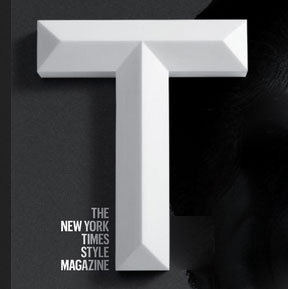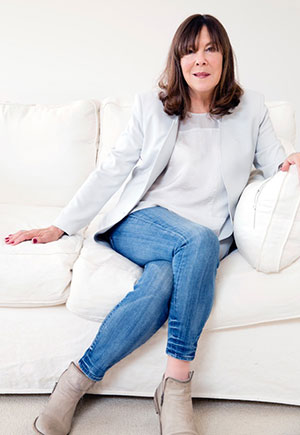by Amy Ephron
From Loose Diamonds ...and other things I've lost (and found) along the way
Excerpt published in the New York Times "T" Magazine

photo-Jonathan BeckerALONE, TOGETHER —
The author, far left, enjoyed a moment to herself at a party in the 1970s.
The bubbly flowed, the diamonds too. For one good-time girl in ’70s L.A., it seemed as if the party would never end. Adapted from “Loose Diamonds … and Other Things I’ve Lost (and Found) Along the Way,” published by William Morrow. Some names have been changed.
I have a theory that single women who buy Champagne by the case rarely end well.
Disclaimer: I’ve been known to make generalizations based on a case study of four.
Honey Hathaway was the first single woman I knew who bought Champagne by the case (except for a random movie star friend of my mother’s). In Honey’s case, it was Cristal. And let me say, right from the start, that I don’t actually know what happened to Honey, which leads me to my second theory that I’ve never tested but always believed: that in some way, the U.S.A. could be a perfect place to hide, just vanish, set up another identity and carry on. Honey was, also, the first 23-year-old woman I knew who owned her own house. Big house. Spanish. With a step-down living room and a formal dining room and a sweeping staircase that would do Scarlett O’Hara proud. The rest of us all rented, had a roommate, lived in somebody’s pool house or in an apartment on Fountain.
The street that she lived on had no name. It was a small cul-de-sac off Benedict with three houses on it, hidden in the front by a Buckminster Fuller domelike structure that blocked any view of what was behind. It probably had a Benedict Canyon address, but since you were more than likely to drive right by it we took to calling it “No Name Street.”
My friend Lisa, who is a casting director and terribly practical, thinks Honey moved to Los Angeles because she had a dream, but it was a little difficult to put your finger on exactly what her dream was. I think Honey moved to Los Angeles because she needed a fresh start, a place where she had a little less history and a little more room to carry on. In some way, she needed a place to hide. And “No Name Street” was a perfect place to hide, for a while, anyway.
Honey was gorgeous, in an old-fashioned sultry kind of way: deep blue eyes, dark lashes, soft curly dark hair, and her figure was a little round, not the least bit anorexic like the rest of us. She was full of useful (or useless) homilies like “Never sleep on your back. Gravity pulls down, you know.” She said it with such certainty that you were certain she was right. But then what side were you supposed to sleep on? Facedown? That didn’t make any sense either. She was a big proponent of some kind of horse shot (no clue what it really was), dispensed at a clinic in Switzerland, something to do with anti-aging and this was the late 1970s and she was in her 20s.
There was a lot of speculation about whether Honey was an heiress, because someone had to be paying for the mortgage and the trips to Switzerland, not to mention the Champagne. She’d moved from Atlanta but she was born in a small town in Texas. She once told me that the only oil in the town she was born in was at the gas station on the corner. There was something about the way she said it that made me believe she’d been raised dirt-poor. But, like I said, none of us could really tell.

photo-Tom Fanning/Bowery Design and DevelopmentThe place on “No Name Street,”
which still inspires real estate envy.
My friend Lisa thinks that Honey got by on looks. I don’t really think that’s true, as Honey perfected other things, too. She was endlessly amusing, almost as if it was a honed skill, but she also got the joke, if there was one in the room. She knew how to flirt, as if it, too, was a practiced trait. She always kept the table set, so to speak, just in case anybody dropped in. And she was game for practically anything. You couldn’t help but feel she had her passport on her at all times just in case anyone made an offer that she couldn’t refuse. But I think what Lisa means is that Honey didn’t really have any aspirations. Almost everyone else who moved to L.A. had a goal — they wanted to act or direct or write or work at a studio — and Honey didn’t seem to have a definable goal. She had a dream but like I said, it was a little hard to put your finger on exactly what it was. Well, not that hard, really. I think Honey was looking for a husband. But since the rest of us were all pursuing careers and wild nights on the side, marriage wasn’t really in our sightline just yet, so I think we missed the signs. But if she was looking for a husband, she was going about it in a very strange way. She was a little rock ’n’ roll, a little Southern, a little old school, if those three things aren’t a contradiction in terms — but Honey, in many ways, was a contradiction in terms...
From Loose Diamonds ...and other things I've lost (and found) along the way.
Also published in the the New York Times' T Magazine 
Loose Diamonds Copyright © 2011 by Amy Ephron





















